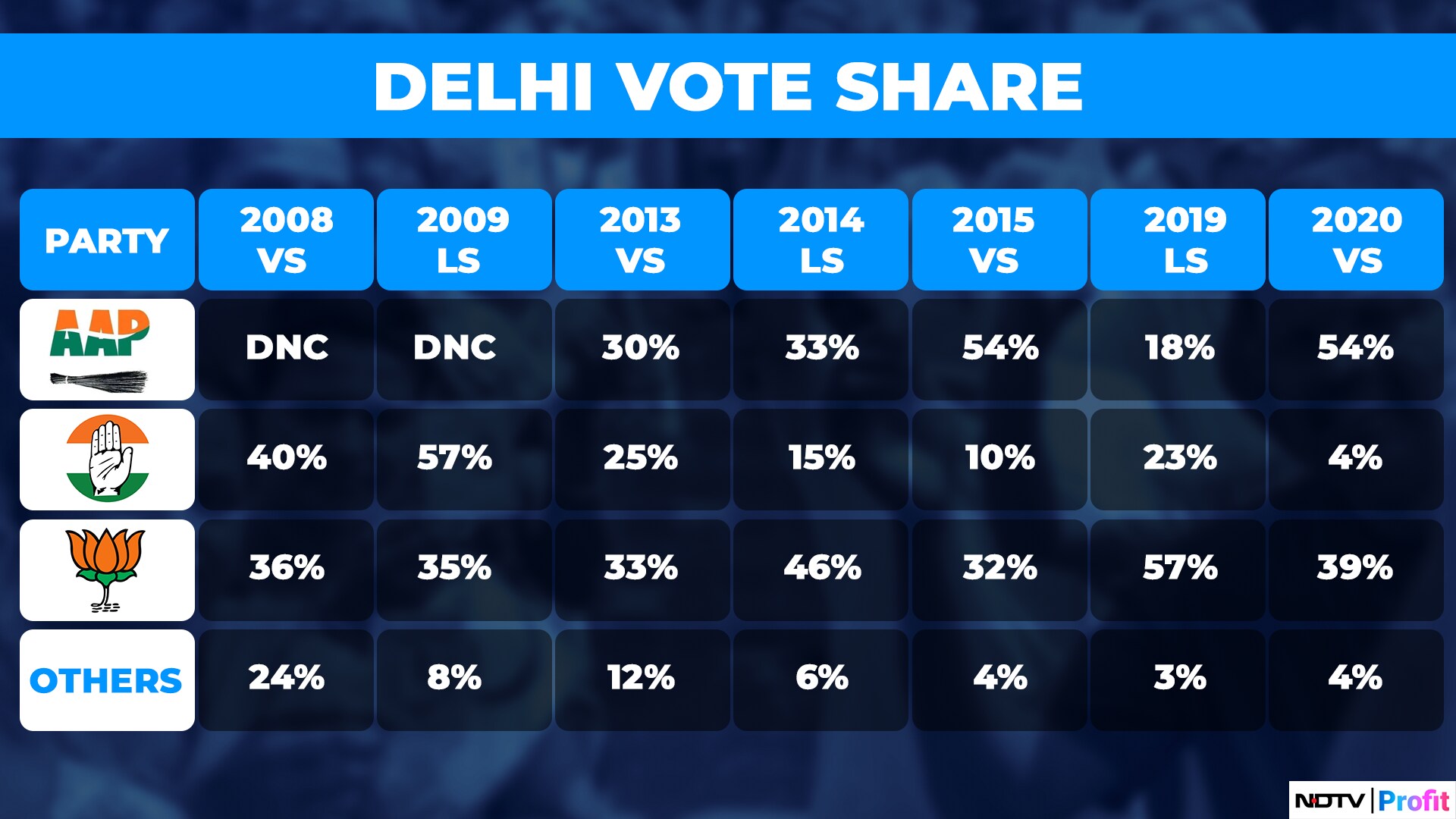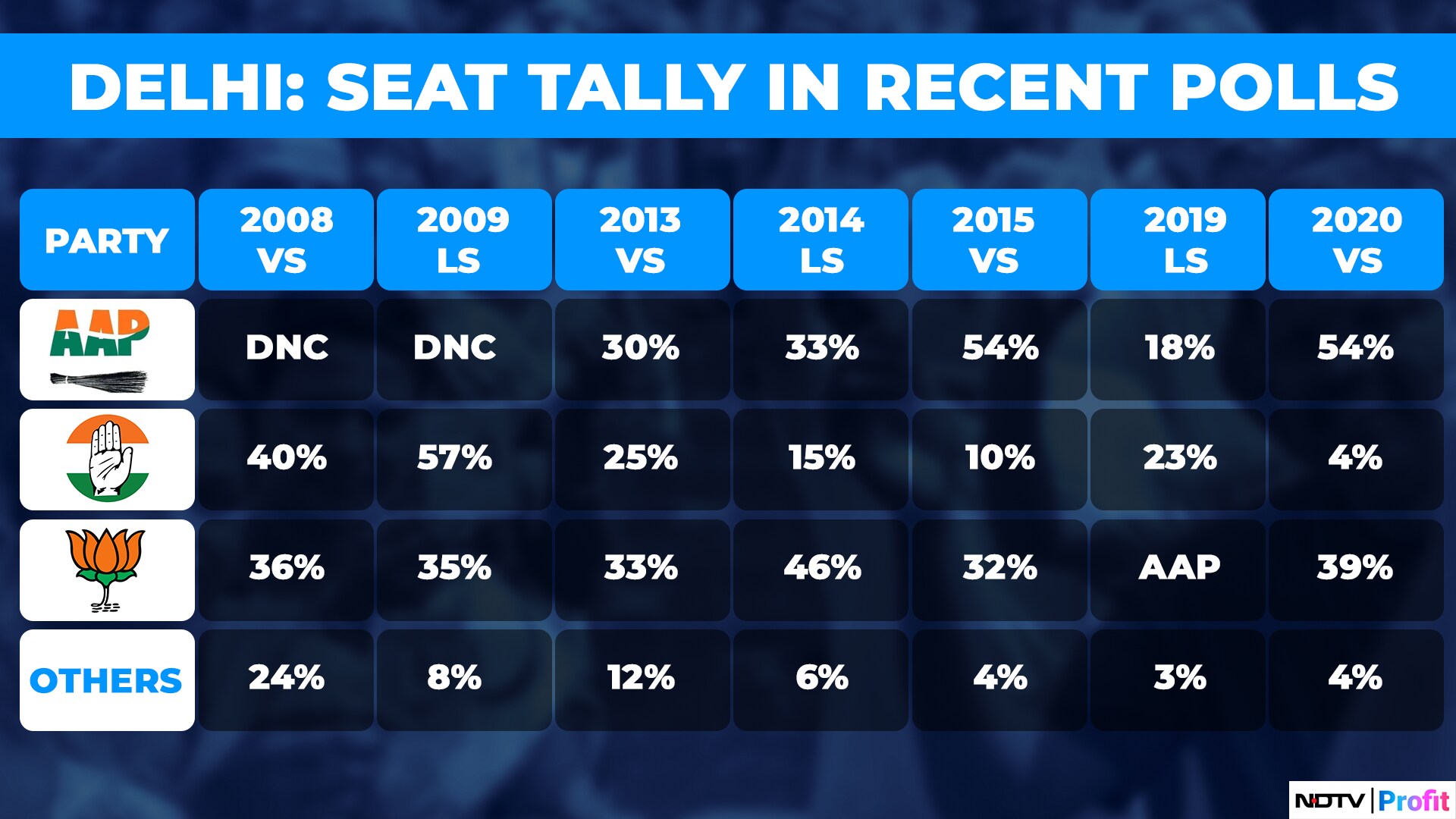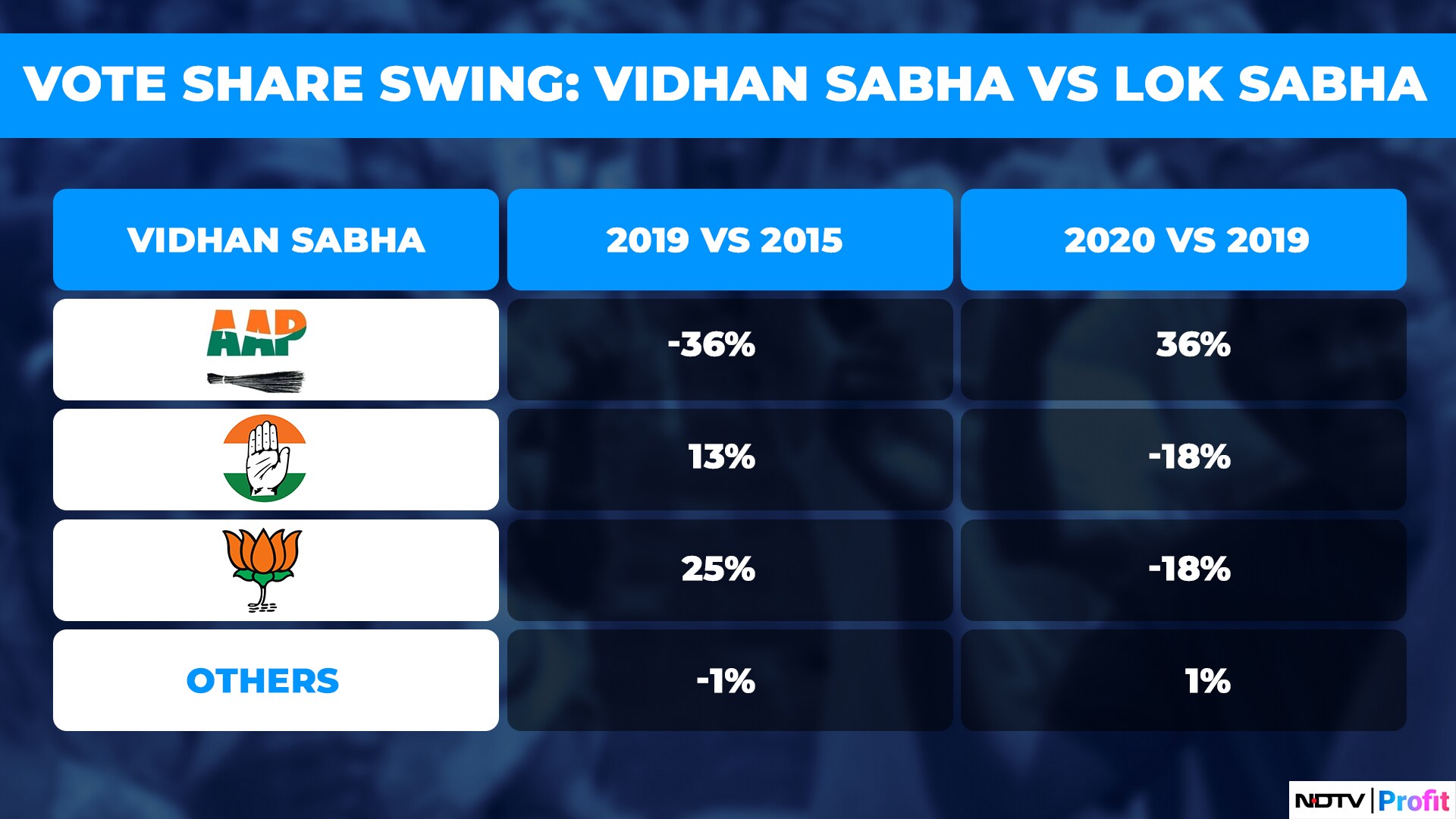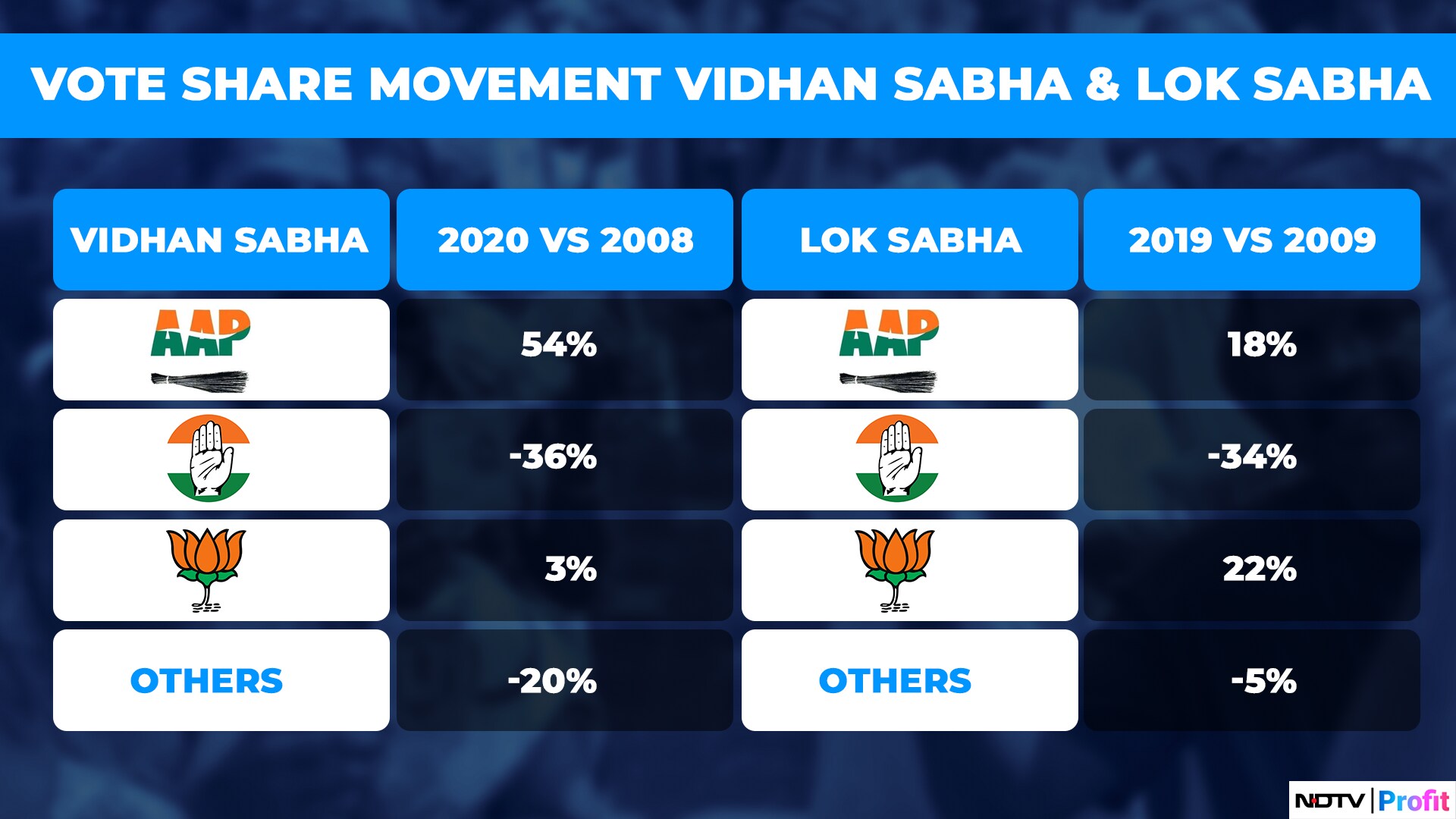
Arvind Kejriwal's interim bail just before the Delhi elections has revitalised the Aam Aadmi Party, boosting both its cadre and leadership. AAP, much like many Indian parties, relies heavily on a single charismatic leader, and Kejriwal is their star campaigner. His absence was felt keenly, and his return has injected new energy into the campaign.
Kejriwal is a skilled orator, fluent in chaste Hindi, and was ranked second only to Mamata Banerjee as the best opposition leader after Rahul Gandhi in a C-Voter Mood of the Nation survey. He excels at narrative-building, having learned strategic communication from the BJP.
The party hopes Kejriwal's arrest will generate sympathy for the AAP in the general elections and help it win maximum seats in Delhi and Punjab. On the other hand, the BJP hopes that the Kejriwal's arrest has dented his image and the image of a party with a difference (AAP), and it would not get any sympathy votes in Delhi.
The party hopes that Kejriwal's arrest will generate sympathy for AAP in the general elections, helping it secure the maximum number of seats in Delhi and Punjab. Conversely, the BJP is banking on Kejriwal's arrest tarnishing his image and that of AAP as a party with a difference, hoping it will prevent them from garnering sympathy votes in Delhi.
Scintillating Debut In Delhi
The AAP made its debut in the 2013 Vidhan Sabha elections, bagging 30% vote share and winning 28 seats. In a hung-assembly situation, AAP formed a government with the Indian National Congress and Kejriwal was installed as the CM for the first time, though he resigned in three months in February 2014 ahead of the general elections.
In the 2014 Lok Sabha elections, though the party failed to win a single seat in Delhi, it increased its vote share by 3%. The BJP won all the seven seats. In the Vidhan Sabha elections in 2015 which followed, the AAP swept Delhi winning 67 of the 70 seats (+39), while BJP's tally reduced to just three seats (-29), Congress couldn't even open its account. The AAP's vote share increased to 54%, while the BJP's declined to 32%.
In the 2019 Lok Sabha elections, the BJP again swept Delhi, winning all seven seats. The AAP's vote share fell to 18%, while the BJP's improved to 57%. In the 2020 Vidhan Sabha elections, the AAP again won 62 of the 70 seats, its vote share jumping to 54%, while the BJP's declining to 39%.

Split Voting in Delhi
It is quite apparent that Delhi has witnessed split voting in the past 10 years, voters backing the BJP overwhelmingly in national elections and the AAP in assembly elections.
The BJP, which sweeps national elections, is not even able to win 10% of seats in assembly elections and the AAP, which sweeps state elections, is not able to open its account in national elections.

In terms of leads in assembly segments, the BJP, which was leading in 60 Vidhan Sabha seats as per 2014 Lok Sabha performance basis, could win just three of these in 2015 state elections. In 2019, the BJP was leading in 65 assembly segments, which declined to just 8 in 2020 Assembly elections.
Voters are quite clear in their choices. It is also indicative of the fact that there is a big chunk of swing voters in the Delhi, party loyalties are not hard ingrained.
The AAP received 54% of the vote share in the 2015 Vidhan Sabha elections, which declined to 18% in the 2019 Lok Sabha (-36%) and jumped back again to 54% in the 2020 Vidhan Sabha polls (+36%). This means there are 36% swing voters in Delhi.
When the AAP gained 36% in the 2020 Vidhan Sabha, it came at the expense of 18% each from the BJP and the Congress. The BJP's vote share declined from 57% in 2019 to 39% in 2020 and Congress' from 23% in 2019 to 5% in 2020.

High Number Of Swing Voters
These 36% voters are not traditional/ideological voters of the BJP or the Congress or the AAP. This 36% swing vote is where Kejriwal hopes to gain sympathy. As much as 18% of these voters, which is half of total swing voters of 36%, voted for the Congress in Lok Sabha elections due to the national character of the polls.
These 18% voters could easily switch to the AAP as both parties have formed an alliance with each other. This is largely an anti-BJP vote, which could switch to the AAP naturally. Also, the AAP has grown at the expense of the Congress party.
Their support base is complementary, comprising Scheduled Castes, Scheduled Tribes, Other Backward Classes, Muslims, poor and the downtrodden. The poor living in slums have been attracted by the specific targeted schemes of free power, water, good schools and hospitals.
The AAP has gained 20% vote share in the Vidhan Sabha elections in Delhi since 2008 when it did not even contest, 36% of it has come at the expense of the Congress and 20% other parties like the Bahujan Samaj Party, Rashtriya Janata Dal, Lok Janshakti Party, Janata Dal (United), Shiromani Akali Dal and independents. Similarly, in the Lok Sabha polls, the Congress has lost 34% vote share since 2009, 18% grabbed by Congress and the balance by the BJP.

Sympathy Factor
C-Voter conducted a survey post Kejriwal's arrest and came up with interesting findings. As much as 52% of voters in Delhi believe that Kejriwal's arrest will generate sympathy votes and 39% say it won't.
The key question in Delhi is whether the 18% voters who switched from the BJP to the AAP in the Vidhan Sabha elections can be retained by the party on account of sympathy for Kejriwal as these are neutral voters and not ideologically aligned to the BJP.
Will these 18% swing voters switch over to the BJP or not? In 2019, the BJP bagged 57%, while the AAP and the Congress contesting separately bagged 41% vote share in aggregate. If half of these voters (9%) remain with the AAP due to sympathy wave, then the INDIA bloc could win five seats and the BJP two seats. If there is no sympathy, then the BJP is likely to retain all the seven seats.
Battle For Punjab
In Punjab, the Congress and the AAP have not formed an alliance for fear of giving opposition space to the BJP. There is a quadrangular contest happening, with the SAD and the BJP also contesting separately. The Congress won eight of the 13 seats in 2019, the BJP and the SAD two each and the AAP one seat.
The main contest is between the Congress and the AAP in the state and if the AAP gains seats, it could be largely at the expense of the Congress as the BJP does not have much stakes there.
The AAP is contesting 22 seats at the national level and Kejriwal hopes to win over 10 seats to have some national heft and emerge as the main opposition to the BJP in the future in national politics. Will Kejriwal's arrest generate sympathy or dent the AAP's image? This is the key question!
Amitabh Tiwari is a political commentator, strategist, and consultant advising political parties and leaders. He was previously a corporate and investment banker.
Disclaimer: The views expressed here are those of the author and do not necessarily represent the views of NDTV Profit or its editorial team.
Essential Business Intelligence, Continuous LIVE TV, Sharp Market Insights, Practical Personal Finance Advice and Latest Stories — On NDTV Profit.























